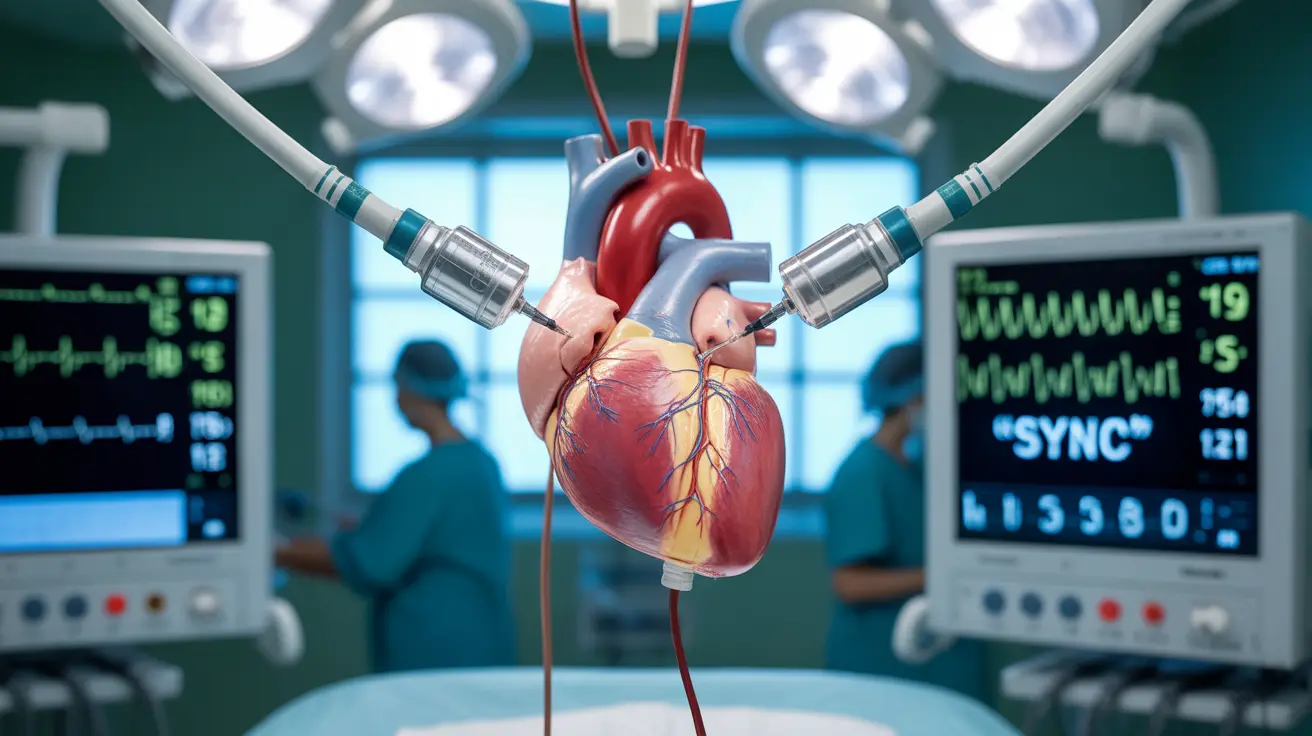When dealing with heart rhythm disorders like atrial fibrillation or flutter, cardioversion is often a crucial treatment option. However, many patients wonder about the safety and frequency limits of this procedure. Understanding how many cardioversions you can safely undergo is essential for making informed decisions about your heart health treatment plan.
Understanding Cardioversion and Its Purpose
Cardioversion is a medical procedure that uses electrical or chemical means to restore a normal heart rhythm. It's primarily used when the heart develops an irregular rhythm (arrhythmia), particularly conditions like atrial fibrillation or atrial flutter. The procedure works by delivering controlled electrical shocks to the heart or using medications to reset its rhythm.
Frequency of Cardioversion Procedures
The number of cardioversion procedures a person can safely undergo varies based on individual factors. While there isn't a strict universal limit, several key considerations determine the appropriate frequency:
Individual Patient Factors
- Overall heart health and structural integrity
- Underlying cardiac conditions
- Age and general health status
- Response to previous cardioversion attempts
- Presence of other medical conditions
Success Rate Considerations
The effectiveness of repeated cardioversions often diminishes over time. If a patient requires frequent cardioversions, doctors typically reassess the treatment strategy and consider alternative approaches.
Safety and Risk Factors
While cardioversion is generally considered safe, repeated procedures may carry increased risks:
Common Side Effects
- Skin burns or irritation at electrode sites
- Temporary chest soreness
- Short-term memory issues from sedation
- Temporary heart rhythm disturbances
Long-term Considerations
Multiple cardioversions may gradually affect heart tissue and potentially increase the risk of future arrhythmias. Your healthcare provider will carefully weigh these risks against the benefits of each procedure.
Alternative Treatment Options
When repeated cardioversions become less effective, healthcare providers may recommend alternative treatments:
Medical Interventions
- Antiarrhythmic medications
- Blood thinners
- Rate control medications
- Catheter ablation
- Surgical procedures like maze surgery
Frequently Asked Questions
How many times can you safely have a cardioversion procedure?
There's no set limit on the number of cardioversions you can have. The safety and appropriateness depend on individual factors, including heart health, procedure effectiveness, and underlying conditions. Your healthcare provider will evaluate these factors before recommending repeated procedures.
What are the risks and side effects of repeated cardioversions?
Repeated cardioversions may increase risks of skin burns, heart tissue damage, and reduced effectiveness over time. Some patients may experience temporary side effects like chest soreness and brief memory issues from sedation.
When is cardioversion recommended for atrial fibrillation or flutter?
Cardioversion is typically recommended when symptoms significantly impact quality of life, when medications aren't effectively controlling the arrhythmia, or when the irregular rhythm poses health risks. It's often considered early in treatment for newly diagnosed cases.
What should I expect during and after a cardioversion procedure?
During the procedure, you'll be sedated and monitored closely. The actual cardioversion takes only a few minutes. Afterward, you may experience mild chest soreness and will need someone to drive you home. Most people can return to normal activities the next day.
What alternative treatments are available if cardioversions stop working?
Alternative treatments include catheter ablation, antiarrhythmic medications, rate control drugs, and surgical interventions like maze surgery. The choice depends on your specific condition, overall health, and response to previous treatments.




